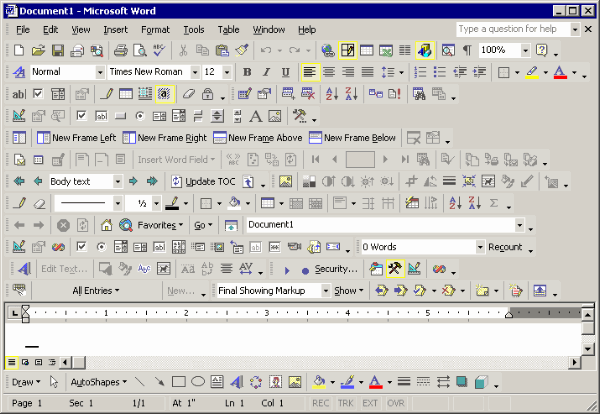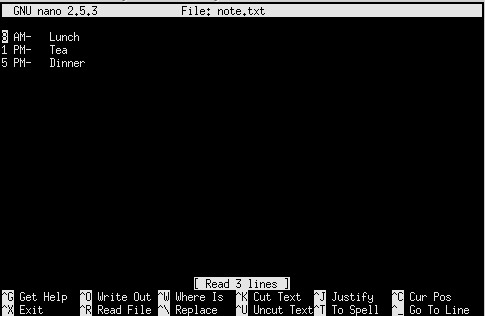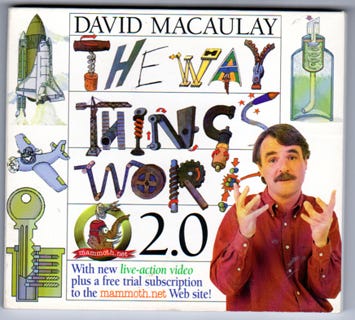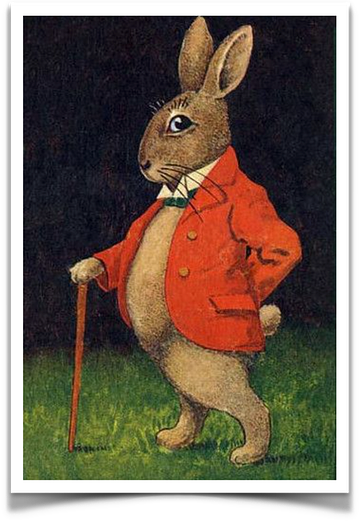Feake Hills, Crooked Waters - Gooey and sticky
User Experience Design Considered HarmfulComputers and their cousins — smartphones, tablets, and so on — are supposedly easier to use nowadays, right? In the early days, you had to know a set of “commands” and enter them into the computer by typing them. Often there wasn’t much, if any, on-screen help. Now we’ve got little pictures (icons) and ways to point to them (a mouse or even your finger) and ways to take actions at any place on the whole screen, not just on a single line of words (or word-like things) at the top or bottom of the display. The big difference is the graphical user interface — the “GUI.” The GUI’s takeover of the world of computing is pretty complete. Unless you’re firmly entrenched in the ultra-geeky end of technology, administering a whole company computer network or writing the words (or word-like things) that enable computers to work, your interaction with most of the computers in your life (and there are a lot of them) is mostly through various GUIs. You almost certainly have a smartphone, and those are pure GUI gadgets. There is a non-graphic interface to them, but it’s pretty difficult to get to, and hardly anybody wants to anyway. You most likely have a computer of some sort, and it’s almost certainly running a GUI. GUIs, by the way, are things that computers “run;” they’re just programs, and as such they’re made out of words (and word-like things). You can bypass the GUI on most computers I know of, but you have to know how to do it, and once you do your options for using the computer are different. Not less — in fact, almost certainly more — but pretty different. This world of GUIs has been built by people with a job that’s only relatively recently come into existence: the user-interface designer (or user experience — “UX” — designer). You can get a university degree in this field, and many, many people have done that, and have jobs turning out GUI designs for a vast array of companies. They’re good jobs, too. They pay well, and are regarded as reasonably creative pursuits that help people use various technical products, whether they’re banking systems, shopping applications, or really almost anything else. This is widely regarded as a Good Thing, and if you’re a user-interface designer you probably regard your work as a net positive contribution to the world. Or at least to society. What if it’s not, though? What if the overall effect of years of GUI design and development actually have a negative effect on society? What if, as a UX designer, you’re helping ruin things for everybody? There is a reasonable argument that you are. Let me explain. I’ll start by pointing you toward David Macaulay’s books: Cathedral (his first), The Way Things Work (his best-known), and many others. Macaulay writes and illustrates books that explain things both in function and genesis, so that you understand the things in a deeper and richer way. He’s previously said that the tendency to hide the real mechanisms and systems that make things function is a problem, and not just for the technical people we increasingly depend on to fix our stuff. It is a problem for them, of course. If you’re an automobile technician and you need to get to the engine of a new car, after you open the hood you’re likely to have to open a second set of covers that hide the engine. You could argue that the hood itself is unnecessary, although maybe it has a use in keeping the electrical components dry and improving aerodynamics. But the second set of engine covers exist solely to make the engine look better when you open the hood. I suspect it doesn’t look better to technicians, though. If you’re a computer technician, you’re familiar with the command-line interface that lies beneath the “cover,” because you often can’t do what you need to do with just the GUI. Covering up the way things really work makes it harder for the people who need to know, and need to make adjustments, repairs, alter settings, and keep things running smoothly, whatever the things are. I think Macaulay’s contention that this is also a problem for the rest of us has to do with several things. It creates an illusion that we don’t need to know much about how our stuff works. Just press this key and the letter “a” appears on screen; click that icon and your picture is “automatically” moved to your album, or your page. Humans seem to have a peculiar talent for ignoring and denying things. If the systems and devices and tools we surround ourselves with suggest that they just work, and never mind how, that’s fine with us. The problem with that is that too many people will never take the next steps and begin to understand how their stuff works. There’s an instrumental problem there — we might be able to correct things ourselves more quickly and easily, but without information and understanding, that option is gone. There’s a social problem too, and it has to do with mutual respect. Fixing a car, or a computer, or a water heater, or really anything requires understanding and skill and a particular kind of attitude. If you don’t know anything about what’s involved, how are you going to respect the folks who worked hard to acquire that understanding and skill? You’ll probably just regard them as “your servants.” That has to do with another characteristics humans are susceptible to: egocentrism. Each of us is the center of our own little perceptual universe, and perhaps it’s natural to think that the things we do are more central — more important — than what anybody else does. Even if what we do is play Fortnite, and what somebody else does is setting up the system that lets us into Fortnite in the first place. Would it help to change industrial design so mechanisms are celebrated instead of hidden? Would it help to change UX design so we have to be interacting with our computer systems slightly more directly? I don’t know — but I suspect it might. You can try it yourself, of course — if you have a MacOS computer, find the terminal program (it’s in the Utilities folder inside your Applications folder). On a Windows system you’re looking for the “command prompt,” and you can get there quite a few different ways. On an Apple iOS device like an iPhone or iPad it’s a little more complicated; you’ll need to install a CLI app. There are similar tools for Android and Chrome devices. And if you happen to be a UX designer, I’m not suggesting you find a new career — although that’s exactly what I did. Tales From the ForestHare was sitting in Raccoon’s parlor. “Somebody’s trying to ferret out what happened at the party in the barn,” he said. “Who?” asked Raccoon carelessly. “Ferret,” said Hare. “I heard you the first time,” said Raccoon, “I meant who’s doing the ferreting.” “Ferret,” said Hare again. “You can’t miss him. He looks like a smaller version of Otter, but he’s wearing an old-fashioned hat and a raincoat. And in his pocket — you’re not going to believe this, Raccoon — he’s got a whistle. A dirty one.” “A dirty whistle?” said Raccoon, astonished. “Who carries a dirty whistle around in the forest?” “That’s just what I asked myself,” said Hare. “Anyway, he came to see me and made it pretty clear he’s going to get to the bottom of what went on at the party.” Raccoon looked at Hare sideways. “What DID go on?” she asked. “Why would somebody ask questions about that party?” “Ferret said it’s because nobody knows what went on,” said Hare, “except for Beaver talking to Masie and Hortense, and that game of tag. I think Squirrel was playing, and maybe Fox. But I don’t know why anybody cares.” “Maybe something went on that somebody WOULD care about,” said Raccoon. “Did this Ferret say why he was asking?” “Somebody hired him,” said Hare, “but he wouldn’t say who it was. He kind of made me nervous, Raccoon. And he kept calling me ‘rabbit’ and ‘hopper’ and ‘long ears’. I had to sit down and eat an extra carrot after he left.” Raccoon frowned at Hare. “You want to take it easy with those, Hare,” she said. “You’re still getting your carrots from the same supplier?” “Well, from the ground,” said Hare. “I thought so,” said Raccoon. “You don’t want to overdo it, Hare. Here, have a cucumber.” She handed Hare a medium-sized cucumber. “Thanks,” said Hare, nibbling the vegetable. “I don’t overdo it, Raccoon. It was just the stress.” Hare remembered something Ferret had said. “Ferret mentioned stress too. He said he’d tried to quit until last week, but then he asked me for a carrot, Raccoon, and he ate the whole thing in about a minute flat!” Raccoon’s eyes got big. “Was it a normal-sized carrot?” she asked. “It was a little on the large side, as a matter of fact,” said Hare. “And Ferret is pretty small.” “Was he…did he act normal?” asked Raccoon. “You mean normal for a talking animal wearing a hat and a raincoat, and carrying a dirty whistle in his pocket?” asked Hare. “I see what you mean,” said Raccoon. “Never mind.” “Anyway,” said Hare, “you might want to watch out for him, Raccoon. I got the feeling he was going to be asking everybody about the party.” “Oh sure,” said Raccoon. “I’ll keep an eye out. But I don’t think you have to worry, Hare. It was just a party. We were both there, remember?” Hare was about to answer when there was a knock on Raccoon’s door. Something told him this wasn’t your normal, every-day friendly knock. “That’s him!” whispered Hare. “He’s going to ask you about the party, Raccoon! Quick, where’s your back door?” “You know perfectly well I don’t have a back door,” said Raccoon. “Calm down, Hare. IF it’s Ferret — and you don’t know that, by the way — let’s find out what’s going on. It won’t be so bad; there are two of us now.” Hare edged toward the back of the parlor while Raccoon went to the door. He was standing behind a chair by the time Raccoon opened the door. Hare had been right. Standing on the porch, still wearing his old-fashioned hat and raincoat, stood Ferret. Photography
If you liked this issue of Feake Hills, Crooked Waters, please share it! |
Older messages
The Issue with Security
Sunday, November 20, 2022
It ain't what it used to be
Helpfully Hoping
Sunday, November 6, 2022
It feels like there's less hope in the world lately. Politics is nastier than it's been in decades. European wars are back, and in the rest of the world many of them never left. We've
Death and Snacks
Sunday, October 30, 2022
Where's the Great Pumpkin when we need him?
The Magic Ring
Sunday, October 23, 2022
That's no moon
Desire
Saturday, October 22, 2022
“Now I am become Death, the destroyer of worlds.”
You Might Also Like
eBook & Paperback • Demystifying Hospice: The Secrets to Navigating End-of-Life Care by Barbara Petersen
Monday, March 3, 2025
Author Spots • Kindle • Paperback Welcome to ContentMo's Book of the Day "Barbara
How Homer Simpson's Comical Gluttony Saved Lives
Monday, March 3, 2025
But not Ozzie Smith's. He's still lost, right?
🧙♂️ Why I Ditched Facebook and Thinkific for Circle (Business Deep Dive)
Monday, March 3, 2025
Plus Chad's $50k WIN ͏ ͏ ͏ ͏ ͏ ͏ ͏ ͏ ͏ ͏ ͏ ͏ ͏ ͏ ͏ ͏ ͏ ͏ ͏ ͏ ͏ ͏ ͏ ͏ ͏ ͏ ͏ ͏ ͏ ͏ ͏ ͏ ͏ ͏ ͏ ͏ ͏ ͏ ͏ ͏ ͏ ͏ ͏ ͏ ͏ ͏ ͏ ͏ ͏ ͏ ͏ ͏ ͏ ͏ ͏ ͏ ͏ ͏ ͏ ͏ ͏ ͏ ͏ ͏ ͏ ͏ ͏ ͏ ͏ ͏ ͏ ͏ ͏ ͏ ͏ ͏ ͏ ͏ ͏ ͏ ͏ ͏ ͏ ͏ ͏ ͏ ͏ ͏
I'd like to buy Stripe shares
Monday, March 3, 2025
Hi all, I'm interested in buying Stripe shares. If you know anyone who's interested in selling I'd love an intro. I'm open to buying direct shares or via an SPV (0/0 structure, no
What GenAI is doing to the Content Quality Bell Curve
Monday, March 3, 2025
Generative AI makes it easy to create mediocre content at scale. That means, most of the web will become mediocre content, and you need to work harder to stand out. ͏ ͏ ͏ ͏ ͏ ͏ ͏ ͏ ͏ ͏ ͏ ͏ ͏ ͏ ͏ ͏ ͏ ͏
mRNA breakthrough for cancer treatment, AI of the week, Commitment
Monday, March 3, 2025
A revolutionary mRNA breakthrough could redefine medicine by making treatments more effective, durable, and precise; AI sees major leaps with emotional speech, video generation, and smarter models; and
• Affordable #KU Kindle Unlimited eBook Promos for Writers •
Monday, March 3, 2025
Affordable KU Book Promos "I'm amazed in this day and age there are still people around who treat you so kindly and go the extra mile when you need assistance. If you have any qualms about
The stuff that matters
Sunday, March 2, 2025
Plus, how to build a content library, get clients from social media, and go viral on Substack. ͏ ͏ ͏ ͏ ͏ ͏ ͏ ͏ ͏ ͏ ͏ ͏ ͏ ͏ ͏ ͏ ͏ ͏ ͏ ͏ ͏ ͏ ͏ ͏ ͏ ͏ ͏ ͏ ͏ ͏ ͏ ͏ ͏ ͏ ͏ ͏ ͏ ͏ ͏ ͏ ͏ ͏ ͏ ͏ ͏ ͏ ͏ ͏ ͏ ͏ ͏ ͏ ͏
Food for Agile Thought #482: No Place to Hide from AI, Cagan’s Vision For Product Teams, Distrust Breeds Distrust
Sunday, March 2, 2025
Also: Product Off-Roadmap; AI for PMs; Why Rewrites Fail; GPT 4.5 ͏ ͏ ͏ ͏ ͏ ͏ ͏ ͏ ͏ ͏ ͏ ͏ ͏ ͏ ͏ ͏ ͏ ͏ ͏ ͏ ͏ ͏ ͏ ͏ ͏ ͏ ͏ ͏ ͏ ͏ ͏ ͏ ͏ ͏ ͏ ͏ ͏ ͏ ͏ ͏ ͏ ͏ ͏ ͏ ͏ ͏ ͏ ͏ ͏ ͏ ͏ ͏ ͏ ͏ ͏ ͏ ͏ ͏ ͏ ͏ ͏ ͏ ͏ ͏ ͏ ͏ ͏ ͏
Pinterest For Authors 📌 30 Days of Book Pins 📌 1 Each Day
Sunday, March 2, 2025
"ContentMo is at the top of my promotions list ... "I'm amazed in this day and age there are still people around who treat you so kindly and go the extra mile when you need assistance. If










